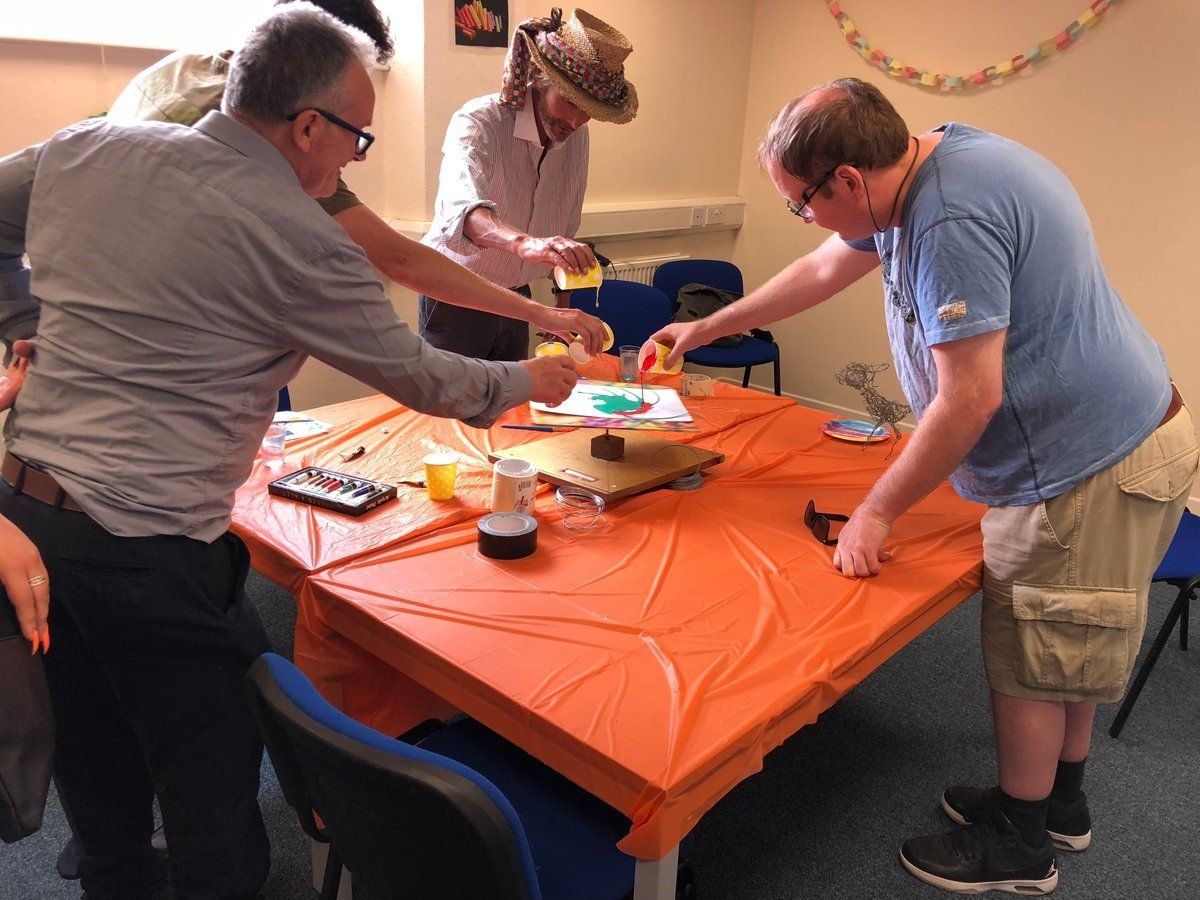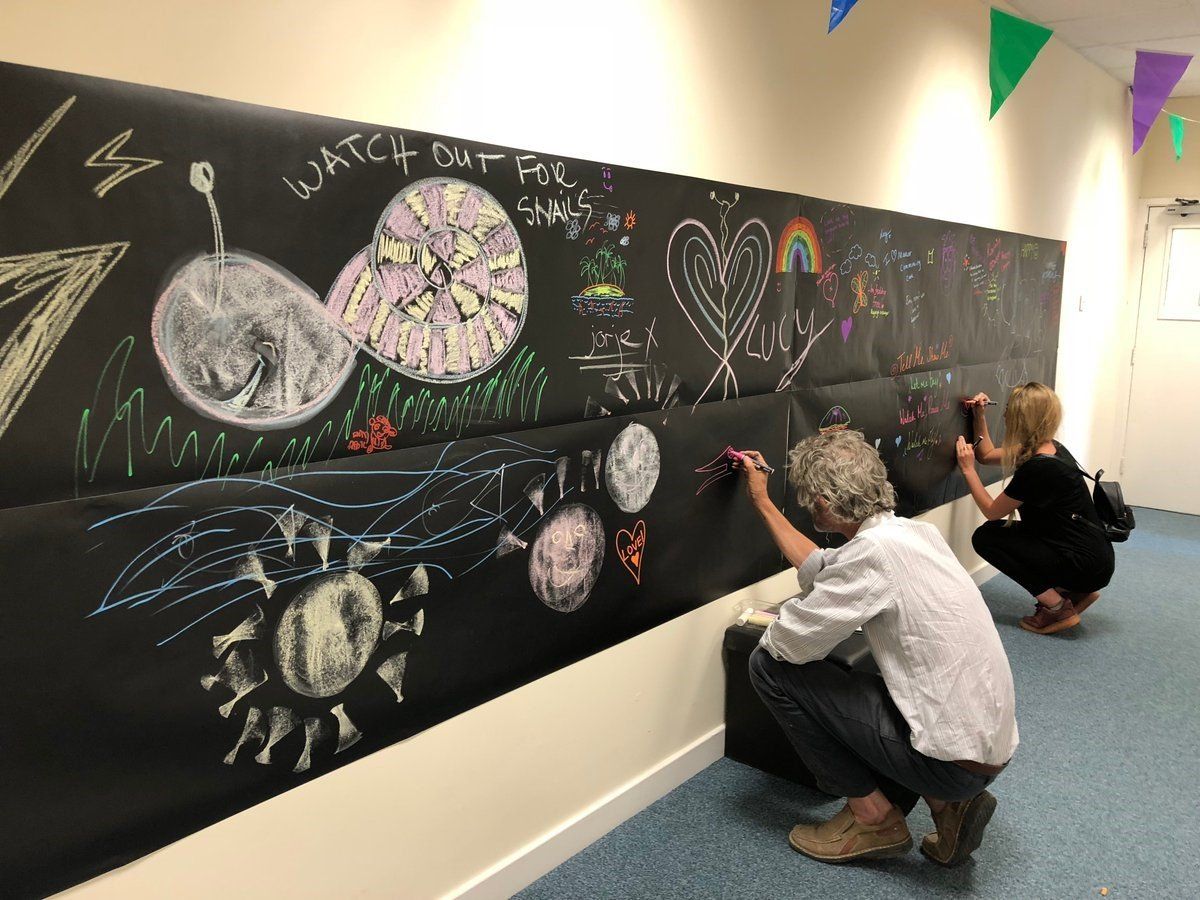Express Yourself!
Summer open day - Expressive art and Hate + Mate crime workshop
On Tuesday 17th July 2018, Manor Community hosted a summer open day, which was open to clients, staff and the public. The day comprised of an expressive art theme, followed by a Hate and Mate crime workshop, organised by Bristol Hate crime and discrimination services.

We held the event at our offices, where we had two rooms set up to cater for the day. The main room comprised of tables for the clients, where they could draw and colour, along with plenty of food on the buffet. This room was also used for the second half of the afternoon to hold the Hate and Mate crime workshop. In the second room we held the Art Workshop, which was taken by one of our fantastic members of staff who has a passion for art. He built and set up a spin art exercise, which everyone loved! Along with portrait drawings and wire sculptures being made! It was great to see everyone get involved with the art and have such a fantastic time. We also put up a chalk board wall in our office, and encouraged anyone to contribute to the wall with anything they wanted to, Express yourself!


The second part of the afternoon, we held the Hate and Mate crime workshop - hosted and performed by Sarah and her assistants from the Brandon Trust with Bristol Hate Crime and Discrimination services. there was a strong level of interest in the workshop from our clients, and a lot of audience participation. One particular client of ours who attended the afternoon, likes to wear woman's clothes, and he expressed that this had resulted in him being a victim of Hate crime in the past. He was a very vocal member of the group, which was excellent to see and for him to open up about issues he has faced.

Overall, the summer open day was a success! Everyone enjoyed themselves, as reflected in our client feedback: 100% of respondents said they enjoyed the afternoon. When asked what they liked and disliked about the event, some responses included: "loved the play about hate crime nothing to dislike loved it all really enjoyed all activities" "I liked The work shop on bullying, workshop, relationships, examples on what happens and is classed as hate crime" "It was good informative interesting and fun Nothing I didn't like".
Latest News from Manor Community
Manor Community Blog




























